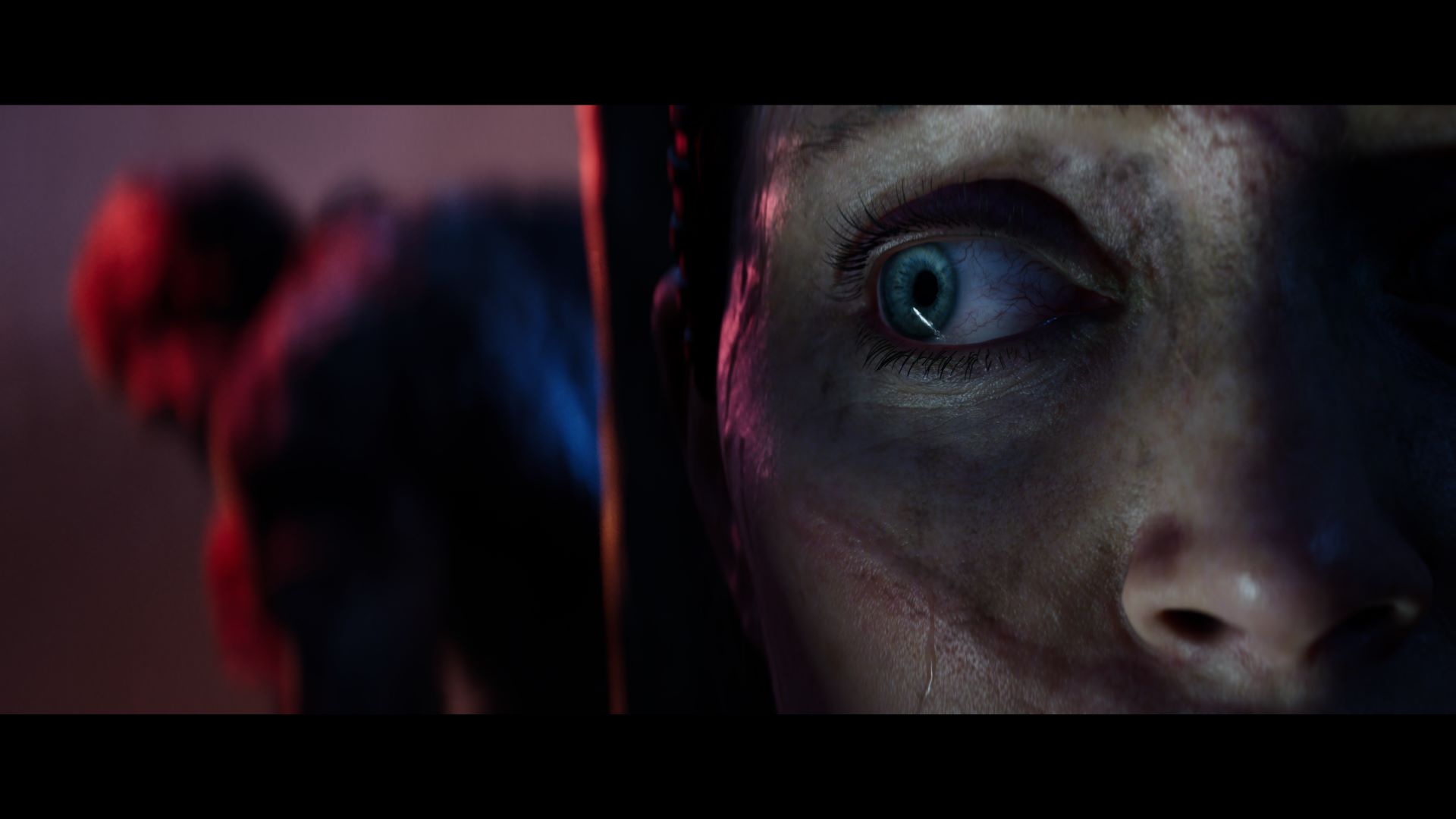
This is represented in action as I watch Senua engage in a conversation with several new characters across her journey. The Furies are in conflict each time, debating Senua’s reactions, running through potential responses and justifications with a mind-bending pace. But Senua is no longer a prisoner to this cacophony, she can see past the influence of the voices and decide for herself how to proceed in that moment. Does this person need my help? Will they hurt me? Senua can find her own answers through the noise just as the player does, and we can feel her emotions and considerations reflected in the style, tenacity and placement of the sound, similar to a score for a movie.
“We are representing abstract concepts with sound,” Garcia Diaz adds. “What does guilt sound like, and what is our vision of guilt for Senua? How do we interpret sadness, or euphoria, or rage?”
“We are not just recreating a sound, we are creating a character’s reality, and this is our way of interpretating these emotions [for Senua] with sound and music and voices, all tied together to create one moment.”
“We are not just recreating a sound, we are creating a character’s reality, and this is our way of interpretating these emotions.”
David Garcia Diaz
Three’s A Crowd
While Hellblade: Senua’s Sacrifice is an insular journey that follows Senua alone with the accompaniment of the Furies representing how her psychosis manifests, Hellblade II will see Senua encounters new characters in the world for the first time. She’ll engage in dialogue with these strangers, and face the trials of navigating relationships while handling the overwhelming, unrelenting narration of her condition.
In one Hellblade II scene, Senua meets a stranger that is being held captive by Viking slavers. In this moment, she’s conversing with him directly, but the voices are at odds with what both parties are saying out loud.
“You have to consider – what happens if there is a conversation between three people? What does that sound like to everyone involved?” Garcia Diaz adds.
While I’m at the studio I’m shown a snippet of the Furies in action. Performers Abbi Greenland and Helen Goalan take part in an unscripted performance depicting Senua moving through a cave. Through headphones, I hear a haunting narration of the surroundings, their thoughts seamlessly falling into a flow state. But what I see is the two actors circling both sides of the head-shaped Neumann microphone sitting between them like vultures picking at a carcass – allowing their voices to feel as though they’re moving through your head, as they would do for Senua Even in this brightly-lit room, I’m on edge after 30 seconds of this experience, the unpredictable hisses and snarky giggles picking at my brain. Garcia Diaz likens the experience to jazz – it’s atmospheric, moving and some of its best parts are created out of improvisation, not a pre-agreed script.
This is represented in action as I watch Senua engage in a conversation with several new characters across her journey. The Furies are in conflict each time, debating Senua’s reactions, running through potential responses and justifications with a mind-bending pace. But Senua is no longer a prisoner to this cacophony, she can see past the influence of the voices and decide for herself how to proceed in that moment. Does this person need my help? Will they hurt me? Senua can find her own answers through the noise just as the player does, and we can feel her emotions and considerations reflected in the style, tenacity and placement of the sound, similar to a score for a movie.
“We are representing abstract concepts with sound,” Garcia Diaz adds. “What does guilt sound like, and what is our vision of guilt for Senua? How do we interpret sadness, or euphoria, or rage?”
“We are not just recreating a sound, we are creating a character’s reality, and this is our way of interpretating these emotions [for Senua] with sound and music and voices, all tied together to create one moment.”
“We are not just recreating a sound, we are creating a character’s reality, and this is our way of interpretating these emotions.”
David Garcia Diaz
Three’s A Crowd
While Hellblade: Senua’s Sacrifice is an insular journey that follows Senua alone with the accompaniment of the Furies representing how her psychosis manifests, Hellblade II will see Senua encounters new characters in the world for the first time. She’ll engage in dialogue with these strangers, and face the trials of navigating relationships while handling the overwhelming, unrelenting narration of her condition.
In one Hellblade II scene, Senua meets a stranger that is being held captive by Viking slavers. In this moment, she’s conversing with him directly, but the voices are at odds with what both parties are saying out loud.
“You have to consider – what happens if there is a conversation between three people? What does that sound like to everyone involved?” Garcia Diaz adds.
While I’m at the studio I’m shown a snippet of the Furies in action. Performers Abbi Greenland and Helen Goalan take part in an unscripted performance depicting Senua moving through a cave. Through headphones, I hear a haunting narration of the surroundings, their thoughts seamlessly falling into a flow state. But what I see is the two actors circling both sides of the head-shaped Neumann microphone sitting between them like vultures picking at a carcass – allowing their voices to feel as though they’re moving through your head, as they would do for Senua Even in this brightly-lit room, I’m on edge after 30 seconds of this experience, the unpredictable hisses and snarky giggles picking at my brain. Garcia Diaz likens the experience to jazz – it’s atmospheric, moving and some of its best parts are created out of improvisation, not a pre-agreed script.






